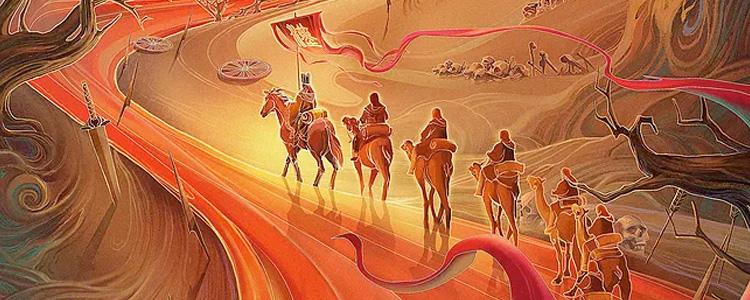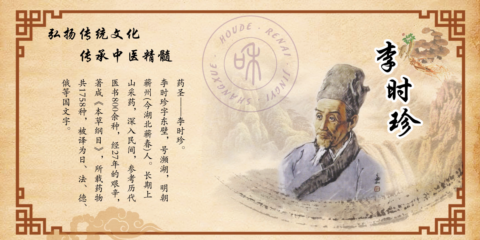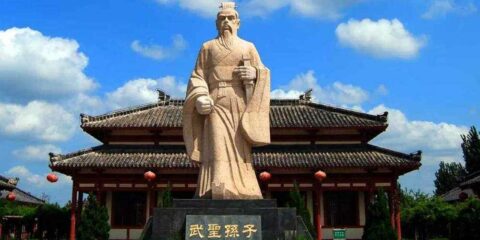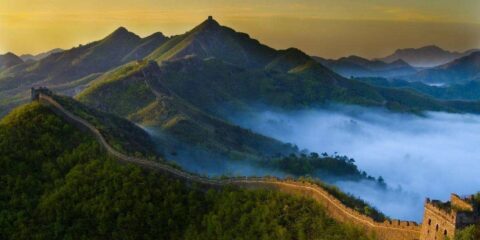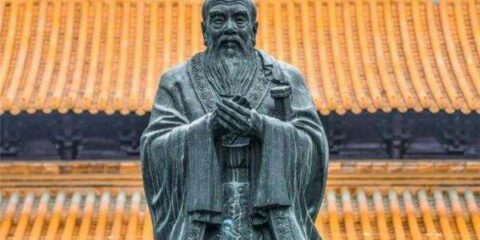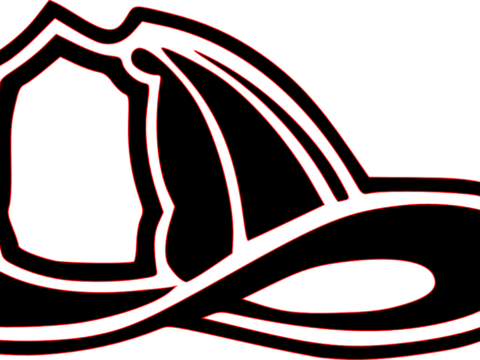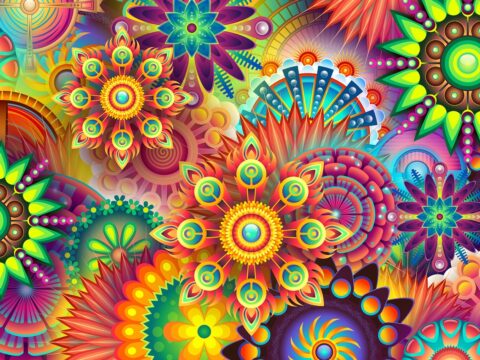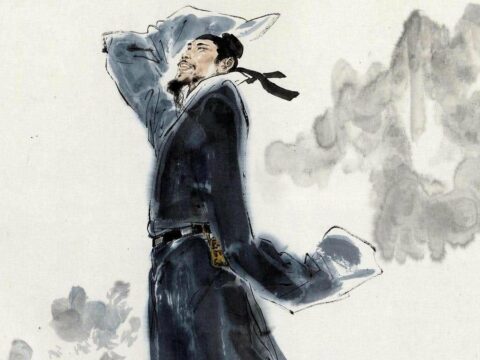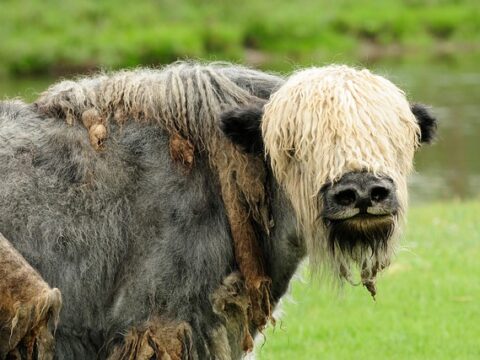| order | name | Historical time | status | consequence |
| 21 | Zhu Yuanzhang | 1238-1398 | The founding emperor of the Ming Dynasty | Zhu yuan zhang under the rule of the Mongolians established the unified han regime, make the east Asian continent power return to the hands of the Han people, also restored the Han nationality lost regime in traditional Chinese territory for a long time, restore and greatly enhance the status of the human nation and self-confidence, also repaired the vitality of the Chinese culture. |
| 22 | Dao An | 312-385 | The founder of the sinicization of Chinese Buddhism | Buddhism has a comprehensive influence on China. If Buddhism is created by someone in China, then its influence will rank first! Dao ‘an’s contributions to the sinicization of Buddhism include organizing monks, making Buddhist scriptures, formulating precepts, taking interpretation as surnames, compiling Buddhist scriptures, compiling scriptures, comprehensively photographing Buddhism, and so on. These measures determine the development direction of Chinese Buddhism. |
| 23 | Ran min | 322? -352 | One of the most courageous battles in Chinese history was the (Ran) Wei Dynasty | Wu Hu Luanhua is the darkest era in Chinese history. Under the bloody massacre and national oppression of the Hu people, the Han nationality is facing the possibility of extinction for the first time! It was run Min who saved the Han people. He led the Han people to carry out a large-scale and barbaric counterattack against the Hu people. Ran min expelled humans from China by millions, creating space for the survival and development of the Han people. Without ran min, Chinese civilization may have been interrupted! |
| 24 | Zhang Qian | About 164 BC- 114 BC | He was a famous diplomat, explorer, and pioneer of the Silk Road in the Western Han Dynasty | According to legend, grapes, pomegranates, walnuts, and other objects were introduced into the Central Plains by Zhang Qian from the western regions, while western music, dance, painting, and acrobatics were also introduced into China, which had a positive impact on ancient Chinese culture and art and promoted the development of world civilization and society. |
| 25 | Shang Yang | About 395 BC-338 BC | He was a statesman, thinker, and representative of Legalism in the Warring States period | Some people think he is one of the six greatest prime ministers in Chinese history. Shang Yang’s “Shang Yang reform” not only made the state of Qin superior to the six Eastern countries for a long time but also promoted the transformation from a patriarchal enfeoffment system to a centralized system, laid the foundation for Qin Shihuang to establish a unified empire and had a far-reaching impact on later generations. |
| 26 | Genghis Khan | 1162-1227 | The greatest and outstanding statesman and strategist in World History | His influence on the world is far greater than that of China. Genghis Khan laid the foundation for the unification of China’s Yuan Dynasty in the future. The Mongols opened up the western regions and practiced freedom of belief, which laid the foundation for the entry of Islam into China. The expansion of Mongolia awakened European civilization, but it destroyed and killed more Chinese civilization and Han people! |
| 27 | Li Bai | 701-762 | Chinese poet of the Tang Dynasty, known as “poetic immortal” in the world | It is a new peak of positive romantic poetry since Qu Yuan. In terms of literature and talent, Li Bai is the greatest genius in history. Li Bai’s poetic style and personality charm have attracted countless talents and people, and have been worshipped and studied by the world in previous dynasties. Li Bai integrates Confucianism, Taoism, and chivalry, so his poetry has the same characteristics and influence history! |
| 28 | Tu Fu | 712-770 | “Poetry saint” is the most famous realistic poet in China and a world cultural celebrity | Du Fu is a master of Chinese poets. His poetry has been sought after and worshipped by scholars and talents of all dynasties. “Thousands of scholars note Du” shows his influence! Du Fu can be said to be a representative of China’s narrow culture, and his thoughts and talents have been approved by the mainstream of all dynasties. The influence is under Li Bai because people are used to the name of “Li Du”! |
| 29 | Bi Sheng | about 970-1051 | The invention of Bi Sheng’s movable type printing is a great revolution in the history of printing | It is one of the four great inventions in ancient China. It has opened up a broad path for the development of Chinese culture and economy and made great contributions to the development of world civilization. From the 13th century to the 19th century, movable type printing invented by Bi Sheng spread all over the world. Movable type printing prospered the number of books and enriched the spiritual life of the people. |
| 30 | Huineng | 638-713 | The sixth ancestor of Zen Buddhism in China | Huineng, as one of the thinkers with great influence on China’s history, once ranked Confucius, Lao Tzu, and Huineng as the “three saints of the East”. Huineng laid a theoretical foundation for the development of Zen and had a great impact on the establishment of the door of later Zen masters. For example, fayan sect was widely spread in Thailand and Korea, and the Yunmen sect and Linji sect were widely spread in Europe and America |
| 31 | Ji Fa | About 1087 BC-1043 BC | Founder of the Western Zhou Dynasty | He inherited his father’s will, destroyed the Shang Dynasty in the 11th century BC, seized national power, and established the 800-year Western Zhou Dynasty, which laid the foundation for the stability and development of the early Chinese nation. Ji Fa showed outstanding military and political talents and became a Ming monarch in Chinese history, known as King Wu of Zhou. |
| 32 | Li Bing | About 256-251 BC | An outstanding Water Conservancy Engineer in the Warring States Period | Some people call it “great” as the first of ancient Chinese scientists. Its masterpiece “Dujiangyan” is greater than the Great Wall. It has a large scale and reasonable layout. It has three functions flood control, irrigation, and navigation. It is also a rare miracle in the history of world water conservancy projects. With it, there will be Sichuan, a vast land of abundance, and a rich rear area for China for a long time. |
| 33 | Cao Cao | 155-220 | The founder and main founder of the state of Wei in the Three Kingdoms period | At the end of the Eastern Han Dynasty, the population and food production were affected by natural disasters, plagues, and wars. The population decreased from 50 million to more than 7 million. The situation was very serious! It was not until Cao Cao unified northern China, extensively cultivated farmland, built a water conservancy, and allowed the Han people to recuperate and restore stability, so as to prepare for the unification of China by the Jin Dynasty. The main figures in the great split period sometimes have a greater role and influence than the rulers in the great unification period! |
| 34 | Kangxi | 1654-1722 | The fourth emperor of the Qing Dynasty, one of the most successful emperors in Chinese history, was called “Emperor Kangxi”. | Emperor Kangxi was kind to Mongolia, pacified San Francisco, recovered Taiwan, resisted tsarist Russia, and crusaded against quasi-Gordan, laying the foundation for China’s modern territory. The achievements of repairing books, compiling classics, building water conservancy, and paying attention to people’s livelihood also have a great impact, known as the “prosperous era of Kangxi”, which also lays a solid foundation for China’s population advantage and national competition in the future. |
| 35 | Zhang Ling | 34-156 | Wudoumi sect (Tianshi Dao) founded by Zhang Daoling is an important school of Taoism in the early stage | He wrote twenty-four books such as Lao Zi Xiang Er Zhu and used Fushui to cure diseases and develop believers. First, he wore yellow Taoist robes, swords, seals, and amulets, which became the most important direct keepsake of Tianshi Taoism. If Taoism was founded by Zhang Ling, according to the influence of Taoism in Chinese history, he will rank around ten! Zhang Ling only played a primary role in the establishment of Taoism. |
| 36 | Sun Yat-sen | 1866-1925 | The forerunner of the modern revolution, the founder of the Chinese Kuomintang, and the advocate of the three people’s principles | He made a lot of efforts to overthrow the autocratic rule of the feudal dynasty that lasted for thousands of years in Chinese history! Sun Yat Sen was one of the revolutionaries who established the government of the Republic of China, especially Chiang Kai Shek and Wang Jingwei, who were both leaders cultivated by Sun Yat Sen. But Sun Yat Sen’s influence has been overestimated, and his ranking position should be here. The influence of democratic thought is still lower than that of Taoism! |
| 37 | su shi | 1037-1101 | Known as “Su Dongpo” in the world, it is the representative of bold and unrestrained poets | He has made great achievements in poetry, CI, Fu, and prose, and is good at calligraphy and painting. He is a rare all-rounder in the history of Chinese literature and art! In the history of Chinese literature, it can be said to be the most talented. He is recognized as one of the most outstanding people with literary and artistic attainments in China’s thousands of years of history. It has a high position and countless fans in history. |
| 38 | Zhu Di | 1360-1424 | The third generation emperor of the Ming Dynasty, whose reign period is called the “Yongle prosperous age” | Zhu Di, the emperor Chengzu of the Ming Dynasty, established the capital of Beijing, built the Forbidden City, compiled the Yongle ceremony, set up secret service agencies, and set up a cabinet system (this cabinet system was later followed by western countries and continues until now), sent Zheng He to the west, and so on. Everything has a great impact! |
| 39 | Han Fei | About 281 BC-233 BC | Han Fei is a master of legalism | There is no clear founder of legalism, but Han Fei is the master of legalism. He abandoned the metaphysics of Taoism, the pedantry of Confucianism, and the untimely of Mohism, and provided a theoretical basis for China to establish a unified centralized autocratic monarchy. Legalists made Confucianism “the emperor’s new clothes”. Legalists separated morality from politics, which is better than the theory of monarchy. |
| 40 | Wu Zetian | 624-705 | Wu Zetian was an outstanding female politician in the feudal era and the only orthodox female emperor in Chinese history | However, it is undeniable that Wu Zetian has made great contributions to history. She has promoted economic development, stabilized the border situation, and promoted the continued prosperity of Han culture. As a female emperor, it is unique in history, which has had a great impact on the Chinese tradition that men are superior to women. |
Chinese historical figures are analyzed and listed in no chronological order as the top 100 most influential historical celebrities. Influence does not take into account who is famous, significant, outstanding, widely circulated or influential for a while, but rather which person in history has changed the course of Chinese history, the direction of development, people’s livelihood and economy, and way of life, and whether it has changed the outlook on life, values, the ideology of most people in history The history of China’s history is not just about the people, but about which person changed the course of history, the direction of development, the livelihoods, the economy and the way of life. For reference and study only!


